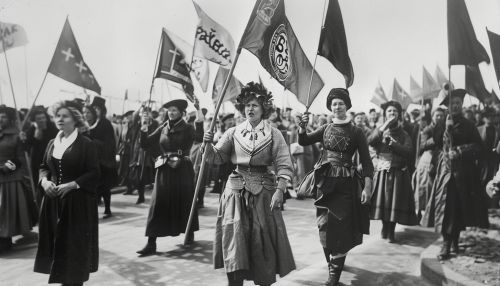Bertha Pappenheim
Early Life
Bertha Pappenheim was born on February 27, 1859, in Vienna, Austria to a wealthy and respected Jewish family. Her father, Siegmund Pappenheim, was a successful merchant, and her mother, Recha Goldschmidt Pappenheim, was a member of a prominent Frankfurt am Main family. Bertha was the eldest of five children. She was educated at home by private tutors and was fluent in German and French.


Illness and Treatment
In 1880, Bertha became seriously ill with a variety of symptoms, including hallucinations, speech disorders, and partial paralysis. She was treated by a number of doctors, including the famous neurologist Dr. Joseph Breuer. Breuer diagnosed her with "hysteria", a common diagnosis for women exhibiting a range of symptoms at the time. Breuer's treatment of Bertha, which involved hypnosis and the exploration of her dreams and fantasies, is considered one of the foundational cases in the development of psychoanalysis.
Involvement in Psychoanalysis
Bertha's case, referred to as "Anna O." in the literature, played a significant role in the development of psychoanalysis. Her treatment by Breuer was extensively discussed by Freud in his book "Studies on Hysteria". Bertha is credited with inventing the "talking cure", the process of discussing past traumas and experiences as a form of therapy, which is still widely used in psychotherapy today.
Social Work and Activism
After her recovery, Bertha turned her attention to social work and activism. She was particularly concerned with the plight of women and children, and she worked tirelessly to improve their conditions. She founded the Jewish Women's Association (Jüdischer Frauenbund) in 1904, which aimed to provide education and vocational training for women. She also campaigned against white slavery and child labor, and she was instrumental in establishing laws to protect women and children in Germany.


Later Life and Legacy
Bertha Pappenheim continued her social work until her death on May 28, 1936. Her contributions to social work and women's rights are well recognized, and she is considered a pioneer in these fields. However, her role in the development of psychoanalysis is often overlooked. It is only in recent years that her contributions to this field have been acknowledged and appreciated.
